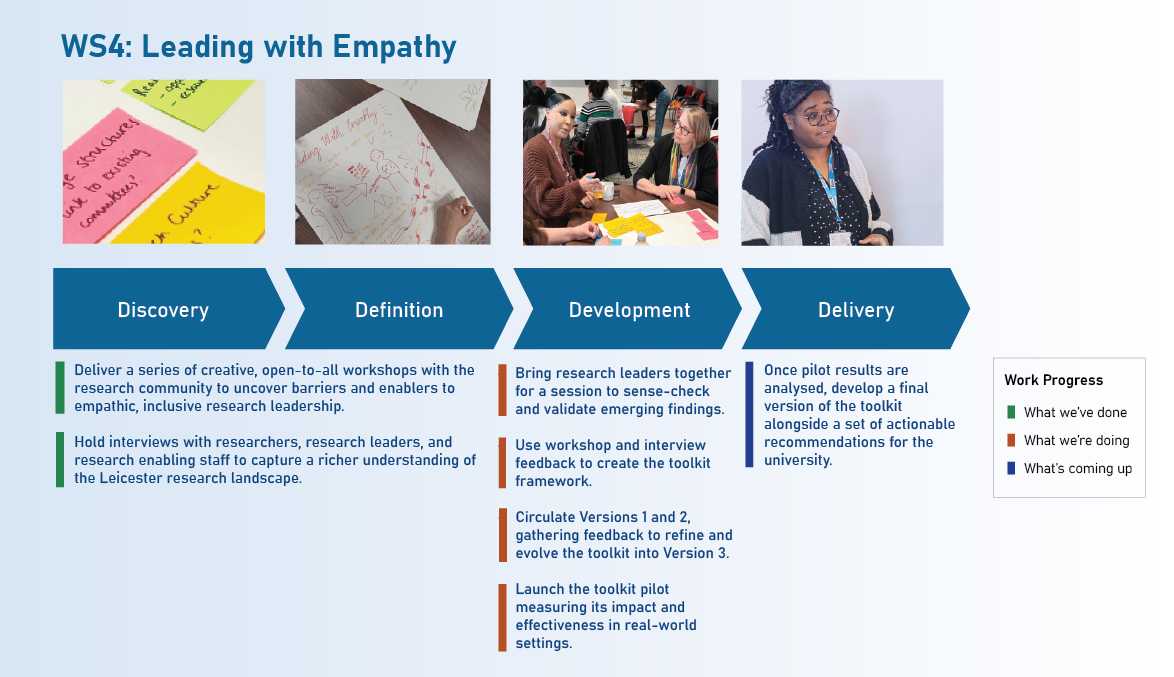
Workstream 4: Leading with Empathy
Leads: Kate Williams and Anvesha Singh Empathy Research Associate: Cleo White
A key challenge of workstream 4 is the inconsistency of empathy and inclusive leaderships, particularly disadvantaging underrepresented groups. Using knowledge gained from Workstream 1-3, Workstream 4 seeks to co-develop an empathic inclusive research toolkit (iRCT) that ensures individual tailored support. IRCT provides tools to equalise progression for all staff, rooted in learning through empathy and inclusion. It will address the issue that leaders do not always know how to support under represented groups because it is not their own experience. We recognise that only by entering uncomfortable spaces, our research culture can change.
The Inclusive Research Culture Toolkit (iRCT) is designed to reshape academic culture through a collaborative approach with researchers and research leaders. Guided by human and user-centred design principles, the iRCT draws on insights from the UoL Stoneygate Centre for Empathic Healthcare, the MedRACE initiative, and the expertise of EDI consultants. Interactive engagement activities will capture valuable perspectives on research leadership and explore barriers to demonstrating inclusion and empathy consistently, forming the foundation of the toolkit.
The iRCT may integrate innovative, evidence-based strategies such as research career development accountability, unlearning behaviours, system empathy, and reverse mentoring. By combining these and other approaches, the toolkit aims to support inclusive, empathic practices. It will be piloted with research groups across various disciplines and sizes, including those that might not traditionally engage with similar initiatives, ensuring it is both practical and impactful in fostering inclusive research cultures.
Workstream Outline:

Understanding Research Leadership: Using a blend of mixed and creative research methods, this phase identifies key leadership qualities while addressing barriers to inclusion and empathy, drawing on diverse perspectives from researchers and research leaders across the university.

Toolkit Design and Development: The toolkit will be co-created as a practical, evidence-based resource, refined through collaboration and iterative feedback to address the needs of researchers and leaders alike.

Toolkit Pilot: Real-world applications of the toolkit will be tested with diverse research groups, ensuring broad applicability and building momentum for meaningful culture change.

Toolkit Evaluation and Implementation: Success will be measured through robust, meaningful metrics, with insights gathered to guide sustainable transformation and inform long-term implementation strategies
